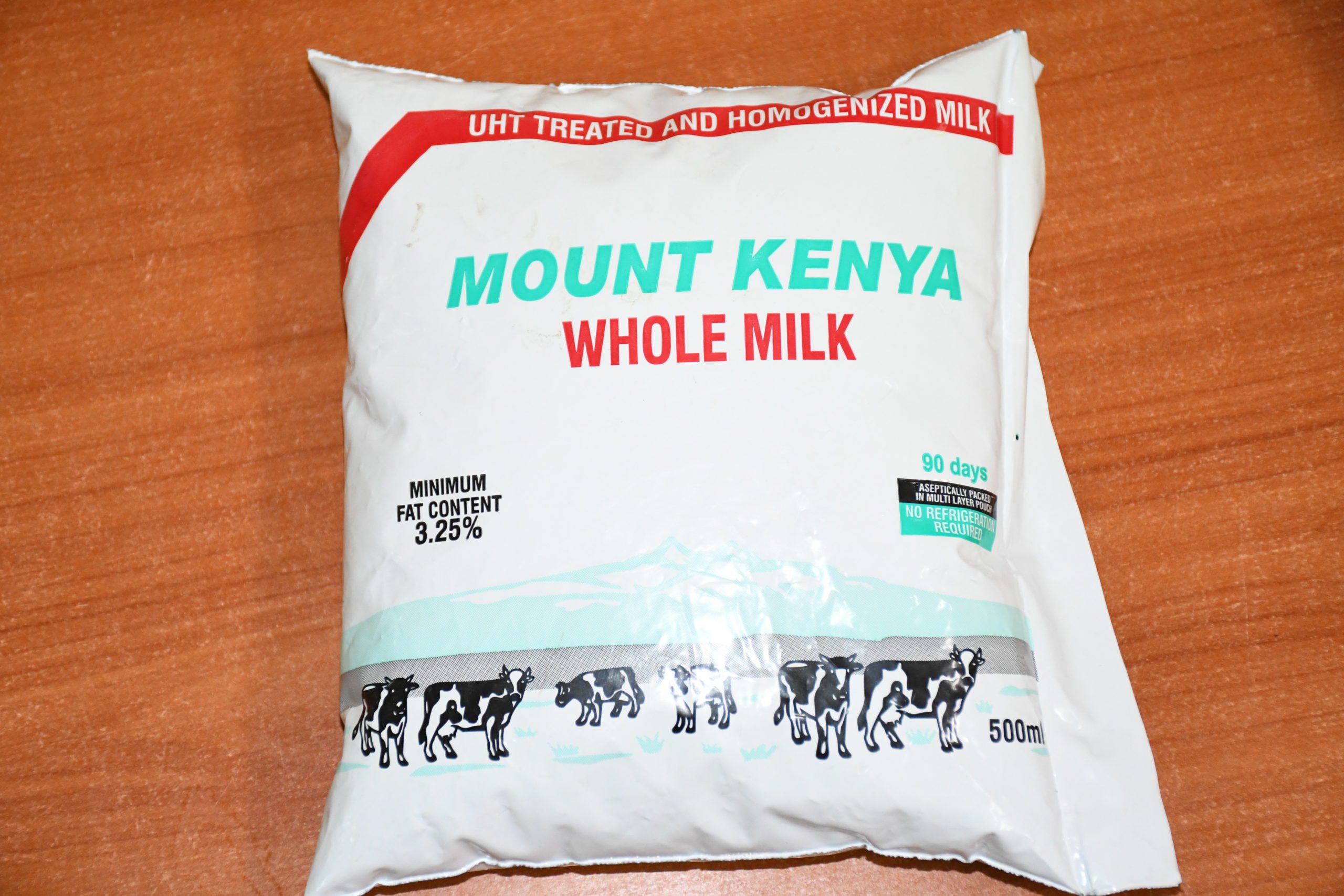This is bound to set alarm bells ringing. Meru Central Co-operative Dairy Union's Processed Mount Kenya Milk supplied in the Country is laced with harmful chemicals and Bacteria, As per a recent report, following samples from the Processor collected and analysed.
Of the 801 samples of their milk collected from Supermarkets and shops in Nairobi, Meru, Makutano, Embu, Kirinyaga, Nakuru, Laikipia and Mombasa, 622 were deemed unfit for consumption upon testing and found to contain traces of harmful chemical compounds like formaldehyde, ammonium sulphate, hydrogen peroxide, urea and others found in detergents. Formaldehyde, in particular, can cause stomach and heart problems and even blindness if ingested.
The water used to increase the volume of the milk was also found to contain traces of various germs and bacteria, including coliforms, and chemical and organic pollutants.
According to the report, Adulteration or adding unwanted ingredients to food may be intentional or unintentional. The first is done deliberately to increase profits.
Adulteration may also be incidental due to lack of knowledge and lack of hygiene. Adulteration is defined as “the process by which the quality or the nature of a given substance is reduced. Water is a common adulterant to milk, to increase volume and profits, but the problem is that the consumers might immediately make out the presence of it.
Most of the samples collected and analysed from Meru and Mombasa, have tested positive for harmful substances such as neutralisers and skimmed milk powder (SMP) while some others had detergent, urea and ammonium sulphate.
Some of these adulterants are said to cause severe health problems such as cancer, renal failure, stunted growth in children, impact on reproduction, gastrointestinal irritation with nausea, vomiting and diarrhoea.
The study conducted by JULISHA and a team from the University Of Nairobi, found that neutralisers were the main adulterant and almost all samples were adulterated with these. They are added to prevent curdling, thus increasing the shelf life. These could be added in the form of caustic soda, sodium bicarbonate and sodium carbonate.
What should worry the authorities is that excessive amount of neutralisers like carbonates and bicarbonates disrupt hormonal signals and affect growth of children.
The whole industry is involved in the contamination scandal, it is not only a corporate responsibility issue, but also a political one, related to government monitoring of food safety. There is strong public demand for thorough investigation of officials’ role in the issue.
Interestingly, The consumption of milk in Kenya between 2020 to 2024 increased by 35.5 percent, handing farmers a steady rise in earnings.
Data from KNBS Leading Economic Indicators November report shows that milk consumption in the formal sector increased by 33.5 percent or 186.25 million litres to 742.2 million litres last year from555.95 million litres in 2020.
Notably, the highest increase in uptake happened between 2023 and 2024, where the intake went up by 85.66 million litres, reflecting a 13 percent uptick.
The Kenyan Dairy industry is considered one of the most developed in East Africa, contributing significantly to the country's agricultural GDP. Kenya’s dairy sector is arguably the second largest milk and milk products industry in Africa based on herd size.
Economic Survey 2024 shows that milk ranks as Kenya’s fourth most valuable agricultural commodity after tea, horticulture, and cattle sales, supporting the livelihoods of over two million small scale rural dairy farmers.







